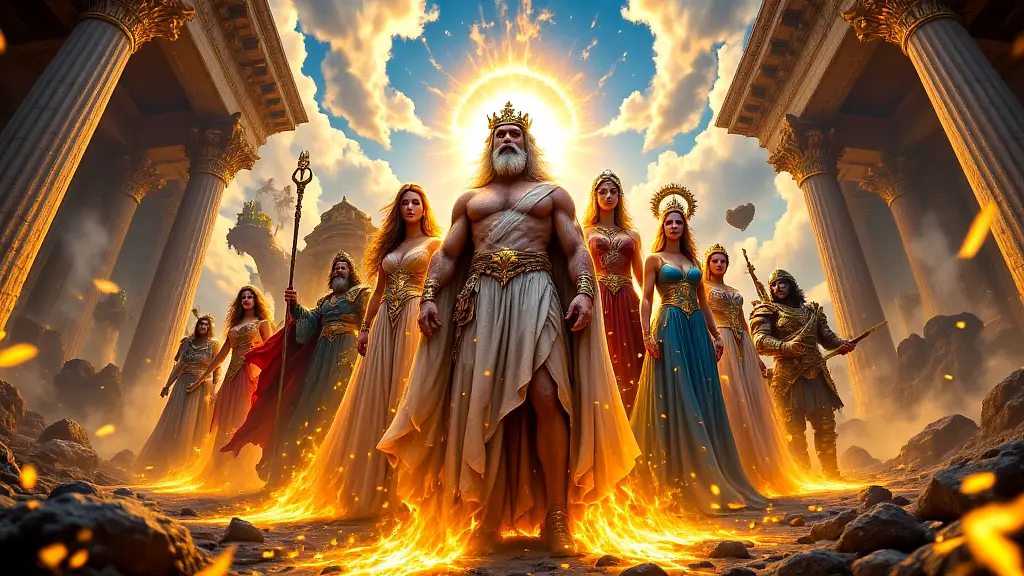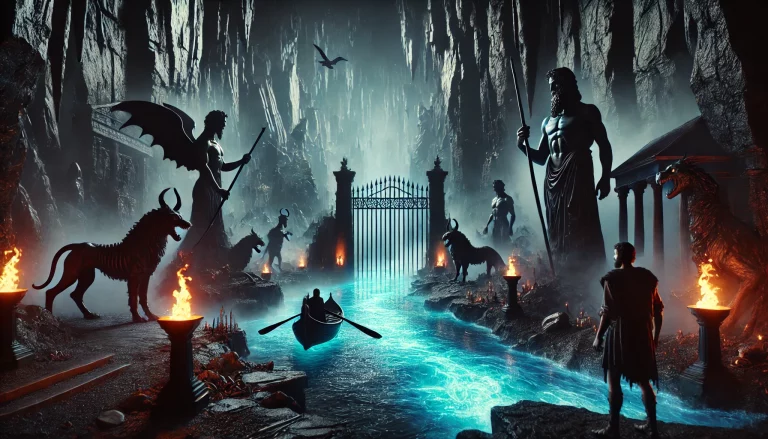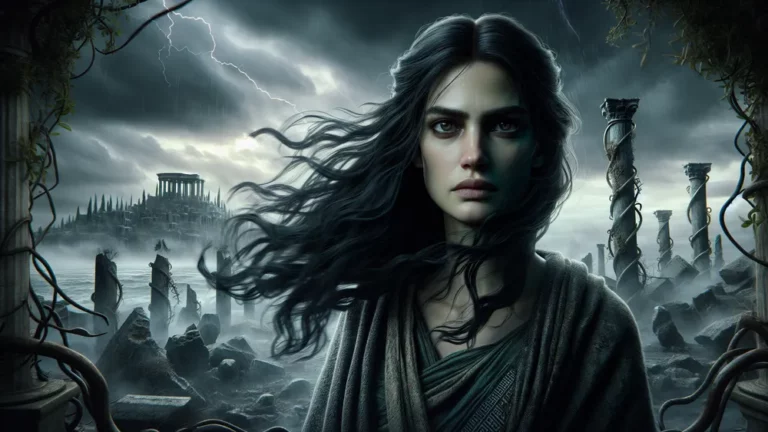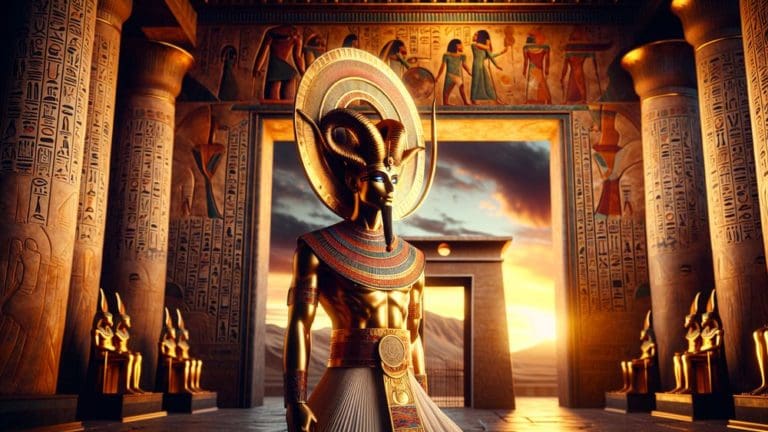Greek Mythology Family Tree: Gods And Goddesses Explained
Think of a family tree packed with drama, power struggles, and legendary fights. Greek mythology’s divine lineage is exactly that – a story full of creation, betrayal, and rule. It has influenced Western art, literature, and even psychology. You probably know names like Zeus or Athena, but do you understand their place in the bigger story?
Key Points:
- Chaos was the empty start of everything, making way for the first gods like Gaia (Earth) and Uranus (Sky).
- Cronus overthrew his father Uranus but feared a prophecy, so he swallowed his kids—until Zeus escaped and freed his siblings.
- The Olympians, led by Zeus, beat the Titans in a huge war called the Titanomachy, taking control of the world.
- Zeus ruled as king of the gods, while his brothers Poseidon and Hades got the sea and underworld, and his wife Hera often got jealous.
- Heroes like Hercules and Perseus were half-god, half-human, doing impossible tasks and facing monsters.
- Helen of Troy’s beauty started the Trojan War after Paris took her, leading to a 10-year battle.
- Lesser gods like the Fates, Hecate, and the Muses controlled fate, magic, and the arts, shaping daily life and stories.
It all begins with Chaos, the empty void that started everything. Later, the Olympian gods took control from Mount Olympus. Their family tree is one of the most famous in mythology. For centuries, poets such as Hesiod and Homer wrote about the first gods, the warring Titans, and flawed heroes.
Some versions of the myths differ – was Gaia alone at first, or was Eros with her? This guide will explain these stories step by step. We’ll start with the beginning of the universe and end with mortal heroes like Hercules. Ready to learn about the most powerful family in mythology? Let’s begin.
Greek Mythology Family Tree: Overview and Key Facts
| Generation | Key Figures | Role/Significance | Notable Offspring/Events |
|---|---|---|---|
| Primordials | Chaos (void), Gaia (Earth), Uranus (Sky), Nyx (Night) | They formed the universe’s base. Gaia and Uranus later produced the Titans. | Nyx gave birth to Sleep (Hypnos) and Death (Thanatos). Uranus was defeated by his son Cronus. |
| Titans | Cronus (Time), Rhea (Motherhood), Oceanus (Sea), Prometheus (Forethought) | They ruled during the Golden Age. Cronus swallowed his children to stop a prophecy. | Zeus escaped Cronus, leading to the Titanomachy (war against the Olympians). Prometheus made humans. |
| Olympians | Zeus ⚡ (Sky), Hera (Marriage), Poseidon 🌊 (Sea), Hades ☠️ (Underworld) | Zeus divided rule with his brothers. Hera’s jealousy influenced many myths. | Athena (wisdom), Apollo (sun), Artemis (hunt), and heroes like Hercules. |
| Heroes | Hercules (strength), Perseus (Medusa slayer), Helen of Troy (beauty) | Half-god, half-mortal. Their adventures often involved gods or curses. | Hercules completed the 12 Labors. Perseus used winged sandals. Helen’s kidnapping started the Trojan War. |
Notes:
- Different myths give conflicting details. For example, some say Pontus (Sea) was Gaia’s child, while others say he was her sibling.
- The Hecatoncheires (100-handed giants) and Cyclopes (one-eyed smiths) helped Zeus defeat the Titans.
- Later, we’ll explore how Prometheus stealing fire and Pandora’s box fit into these stories.
The Primordial Deities: How the Universe Began
Before any gods or Titans, the universe started with ancient, powerful beings. These first forces created everything that exists. Now let’s look at who they were.
Chaos: The Empty Start of Everything
In Greek creation stories, Chaos didn’t mean disorder like we think today. It was the endless, shapeless void that existed before anything else. From this empty space came the first divine beings, each representing basic parts of existence:
- Nyx: She stood for Night and later produced Sleep and Death
- Erebus: Representing Darkness, he was often connected to Nyx
- Gaia: The Earth itself, who would become mother to the Titans
- Tartarus: Both a god and the deepest part of the Underworld
Hesiod described Chaos more as a cosmic rule, while writers like Ovid saw it as active, unformed matter. All versions agree on one thing: Chaos had to come first so everything else could exist after it.
Chaos was the empty nothingness before the world began, where the first gods like Night, Darkness, Earth, and the Underworld later came from.
Gaia and Uranus: The First Godly Pair
Gaia (Earth) and Uranus (Sky) were the first divine couple in Greek mythology. According to Hesiod’s Theogony, Gaia made Uranus to match her power, and together they had three important groups of children that would shape the world. However, Uranus began to fear his children, especially the terrifying Hecatoncheires, which led to future conflicts.
Their children divided into three distinct groups, each with special traits and roles:
| Group | Description | Domain/Significance | Notable Members |
|---|---|---|---|
| Titans | Twelve powerful gods | Ruled the universe | Cronus, Rhea, Oceanus |
| Cyclopes | Giants with single eyes | Skilled metalworkers | Brontes, Steropes, Arges |
| Hecatoncheires | Hundred-handed giants | Represented powerful natural forces | Cottus, Briareos, Gyges |
The Titans eventually overthrew their father Uranus. The Cyclopes and Hecatoncheires became important in later godly wars. Some stories say Gaia also had other children alone, including mountain gods and the sea god Pontus, showing how different versions of the myth developed over time.
How Cronus Took Down Uranus
Uranus treated his children cruelly, especially when he imprisoned the Hecatoncheires and Cyclopes in Tartarus. This made Gaia decide to act. She created an unbreakable sickle and planned with her Titan sons. Only Cronus, the youngest but most determined, was willing to confront his father, leading to the first time power changed hands among the gods.
When Uranus came to lie with Gaia, Cronus attacked from hiding. He used the sickle to castrate his father, which ended Uranus’s rule completely. From the blood that fell on Gaia came the Giants, the Erinyes (Furies), and the Meliae (ash tree nymphs). The severed parts that fell into the sea formed Aphrodite, which demonstrated that violence could create life.
This event marked the change from Uranus’s rule to Cronus’s time, though it came with a warning that Cronus would also be overthrown by his child. The sickle became important in later myths as a symbol of power changing hands. Some stories say this was when the sky and earth permanently separated, which explains why they don’t touch in our world today.
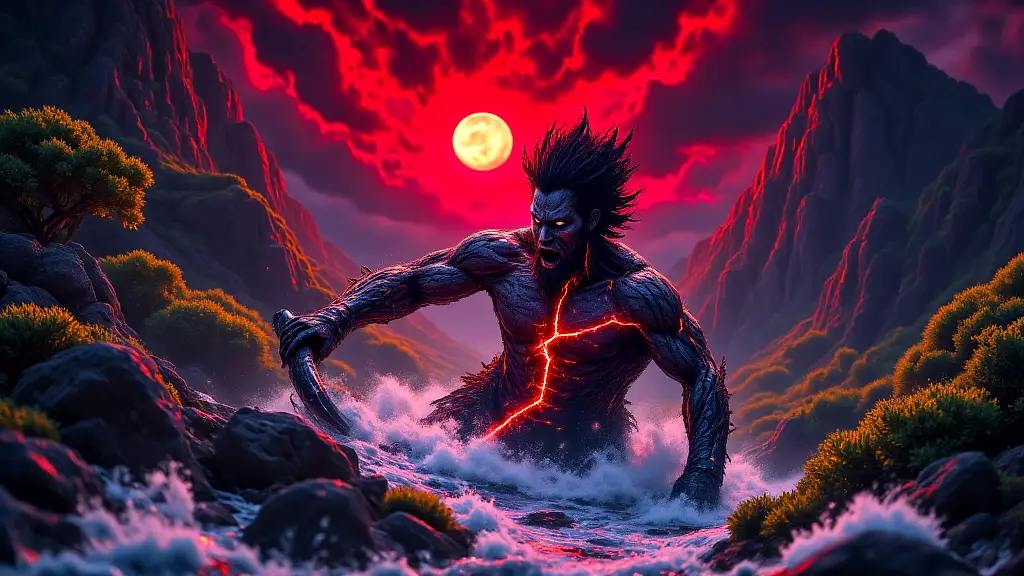
The Titans: Who Ruled Before the Olympians
After Uranus was overthrown, the Titans took control and began what myths call the first golden age. However, their rule became just as full of conflict as the time before them. These powerful gods governed the world before the Olympians came to power.
Cronus and Rhea: The Parents of Zeus and His Siblings
Cronus feared the prophecy that he would lose power to his child, just as he had done to his father Uranus. Each time Rhea gave birth, Cronus swallowed the newborn. One by one, Hestia, Demeter, Hera, Hades, and Poseidon were eaten by their father, living inside him in a strange imprisonment. When Zeus was born, Rhea tricked Cronus.
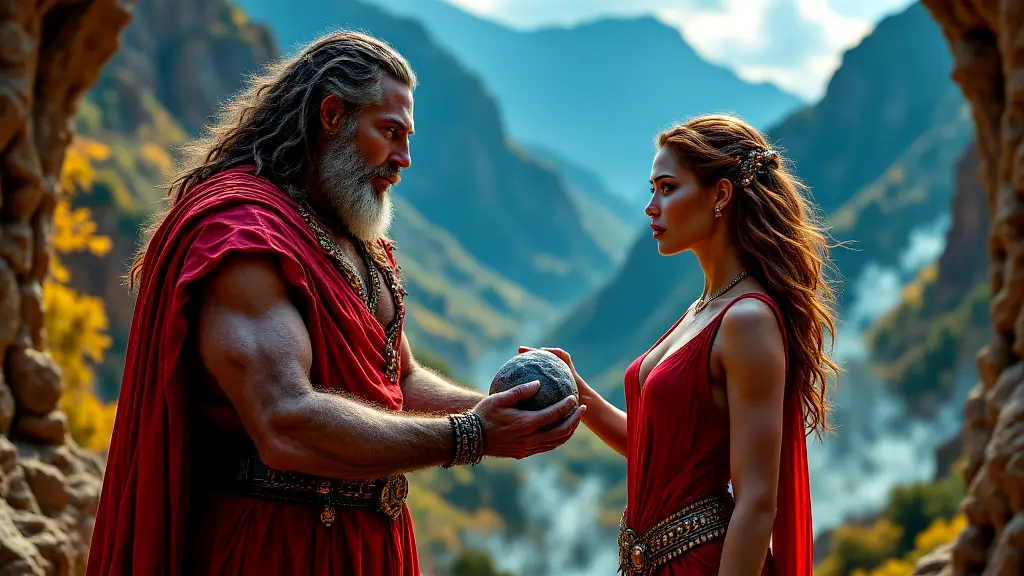
She gave him a stone wrapped in cloth to swallow instead. Meanwhile, she hid baby Zeus in Crete. Most stories say the nymph Amalthea raised Zeus, while Curetes warriors guarded him by banging their shields to hide his cries. This deception led to Zeus eventually challenging his father, though some versions say he grew up in Arcadia or was fed by a sacred goat.
The Titanomachy: When Gods Fought Gods
When Zeus grew up, he made Cronus vomit up his swallowed brothers and sisters. Together they fought against the Titans in what became known as the Titanomachy – a huge war that lasted ten years. The Olympians, led by Zeus, Poseidon and Hades, battled the older Titans who were led by Cronus and Atlas.
They fought so fiercely that ancient stories say they threw entire mountains as weapons. The war changed when Zeus freed the Cyclopes and Hecatoncheires from Tartarus. The Cyclopes made Zeus’s famous thunderbolt, while the hundred-handed Hecatoncheires threw three hundred rocks at once. The noise was so loud it shook the earth. Some stories say the Olympians built their home on Mount Olympus during this war while fighting continued below.
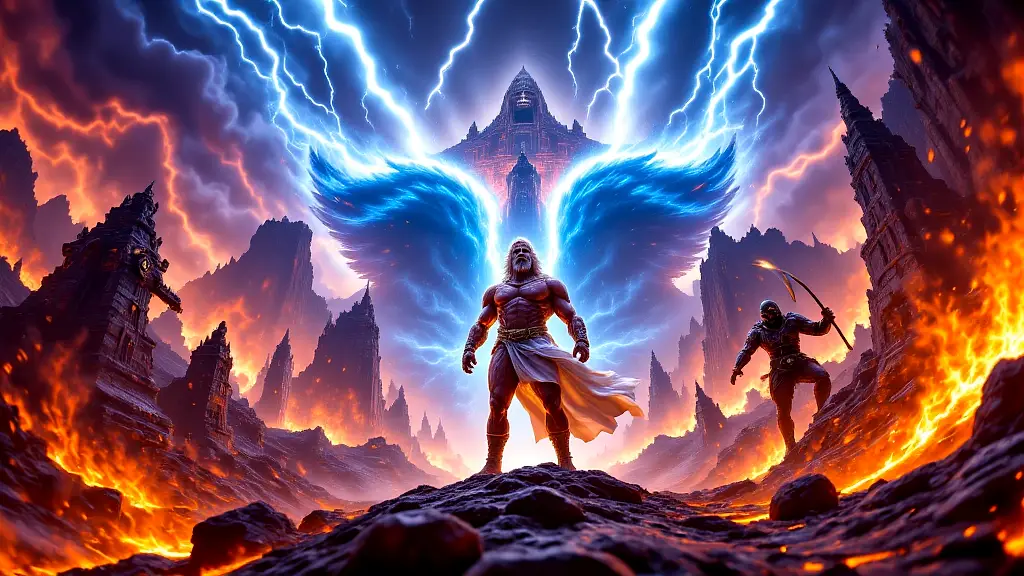
Most defeated Titans were sent to Tartarus, and the Hecatoncheires guarded them. But some Titans didn’t get punished. Oceanus didn’t take sides, while Themis and Prometheus helped Zeus. Atlas got his well-known punishment of holding up the sky. Roman versions sometimes made the war shorter, but Greek stories say it took the full ten years to defeat the old gods.
Prometheus and Epimetheus: Titans Who Helped Zeus
While most Titans fought Zeus, the brothers Prometheus (whose name means “Forethinker”) and Epimetheus (“Afterthinker”) helped the Olympians. Their choices led to very different outcomes. Prometheus helped humans more than anyone else by giving them things that angered the gods:
- Fire: He stole it from Olympus and brought it in a hollow fennel stalk
- Sacrificial Deception: He tricked Zeus into taking bones wrapped in fat as offerings
- Civilization Skills: He taught people architecture, astronomy, and medicine
Epimetheus made a big mistake when he ignored his brother’s warning and accepted Pandora from Zeus. Pandora was the first woman, created by Hephaestus. When she opened her famous jar (later called a box by mistake), all the world’s evils came out, and only Hope remained. This was part of Zeus’s revenge against Prometheus, creating a lasting conflict between gods and humans that appears in many Greek stories.
Some versions say Epimetheus had already given all useful abilities to animals, so Prometheus had to help humans in special ways.
Prometheus helped humans by giving them fire, tricking the gods, and teaching them skills, while his brother Epimetheus caused trouble by accepting Pandora, who released all evils into the world.
The Olympian Gods: Zeus’s Family Takes Over
After the Titans were locked away in Tartarus, a new group of gods rose up to take control. These Olympians created a system that became central to Greek myths, ruling from their home on Mount Olympus. Now let’s look at these powerful gods who took charge.
Zeus: The Top God
Zeus ruled from Mount Olympus with his lightning bolt, keeping the world in balance while having many relationships in the myths. His important marriage to Hera created the main godly family, though he first married Metis, the wisdom goddess. Their daughter Athena came out of his head wearing armor.
Different stories say Zeus had over 100 partners, from the Titaness Leto (who bore Apollo and Artemis) to human women like Alcmene (mother of Hercules).
Zeus had many children who include many important figures:
- Divine Children: Athena (wisdom), Apollo (sun), Artemis (hunt), Hermes (messenger), Dionysus (wine)
- Mortal Heroes: Hercules (strength), Perseus (who killed Medusa), Minos (Crete’s king)
- Cultural Founders: Arcas (started the Arcadians), Hellen (ancestor of Greek people)
The king of gods often changed shape during his pursuits – becoming a swan for Leda or golden rain for Danaë – showing his power and cleverness in these famous stories.
Hera: The Queen with a Vengeful Streak
As Zeus’s sister and wife, Hera ruled as queen of Olympus, watching over marriage, women, and childbirth. Her famous jealousy often distracted from these important duties. Their difficult marriage, which people celebrated each year in the sacred marriage ritual, saw Hera frequently taking revenge on Zeus’s lovers and their children. Hercules suffered most from her anger.
Some areas like Argos and Samos remembered her older role as an earth goddess before she joined Zeus’s group of gods. Hera had two sides. While she made Hercules complete the twelve labors (including fighting the Nemean Lion and Lernaean Hydra), she also protected women during childbirth as Eileithyia.
The goddess associated with peacocks turned Io into a cow out of spite, yet she helped Jason and the Argonauts in other stories. These two sides show how ancient Greeks saw marriage as both sacred and sometimes a struggle for control.
Poseidon and Hades: Brothers with Opposite Realms
Poseidon ruled the oceans using his three-pointed trident, making storms when angry and calm waters when happy. His changing moods matched the unpredictable sea. Sailors asked this bearded god for protection, while coastal cities feared his anger – like when he flooded Attica for picking Athena over him.
Yet this powerful god also made the first horse in some stories and helped sea trade, showing he represented both danger and help from the waters. Below the earth, Hades, who rarely left his realm, controlled the underworld with strict but fair decisions, keeping the cycle of life and death. His most famous story – taking Persephone – explains the seasons, since her yearly return brings spring.
Unlike his showy brothers, this “rich-one” (which is what his name means) liked his quiet halls that contained gems, though some myths say he let heroes like Orpheus ask to bring loved ones back, proving he could be merciful sometimes.
The Unsung Gods and Their Tales
Besides the famous Olympian gods, many other divine figures affected daily Greek life through their specific areas. Let’s look at these lesser-known gods who guided many parts of life, from fate to art and creativity. While not as well-remembered today, they had important roles in the interesting stories people told.
The Fates: The Ones Who Decide Your Life
The three sisters Clotho, Lachesis, and Atropos decided each person’s life path using their thread system. Clotho spun the thread when someone was born, while Lachesis measured its length and decided one’s fortune. Strict Atropos made the final cut with her shears when death came.
Though they sometimes followed Zeus’s orders, these ancient goddesses (possibly children of the early goddess Nyx) worked without favoritism – even gods feared them, like when they foretold Kronos’s fall or decided Meleager’s lifespan by a burning log. Their unchangeable system showed the Greek belief in moira (assigned fate), where human actions existed within set limits.
The three sisters controlled every life by spinning, measuring, and cutting its thread, with even the gods unable to change their decisions.
Hecate: The Witchy Goddess of Magic
Hecate, the goddess who carried torches, was in charge of witchcraft, dangerous plants, and ghost sightings. She often appeared as a strange shape at crossroads, where people left eggs, fish, and honey cakes to please her. Ancient magic workers called on her for protection spells and curses, as written in old Greek magic books. Her three-form statue (showing young woman, mother, and old woman) protected home doors from ghosts.
This puzzling goddess had keys to every place, moving easily between sky, land, and Hades. When Persephone went to Hades, Hecate guided her with lighted torches and later stayed with her underground. People celebrated this in the secret Eleusinian rites. Every month when the moon disappeared, Greeks held the Deipnon (“supper”) by leaving food at crossroads for lost spirits that Hecate watched over.
People respected but also feared this goddess who could give magic power or send bad spirits. Unlike other gods, Hecate’s followers worshipped her in dark places where different worlds met.

The Muses: Who Inspired Art and Knowledge
The nine Muses, who were born when Zeus and the Titaness Mnemosyne (who was Memory) came together, served as the source of all arts and learning. They gave ideas to poets, musicians, and scholars at their mountain homes. Each sister was in charge of a particular art:
- Calliope: Epic poetry (people usually showed her with writing tablet)
- Clio: History (holding scrolls)
- Erato: Love poetry (playing a lyre)
- Euterpe: Music and lyric poetry (with aulos/flute)
- Melpomene: Tragedy (wearing tragic mask)
- Polyhymnia: Sacred hymns (veiled and pensive)
- Terpsichore: Dance (holding a lyre)
- Thalia: Comedy (with comic mask)
- Urania: Astronomy (with globe and compass)
Ancient Greeks called on these graceful goddesses before starting any creative work, because they believed real creativity came from help from the gods, not just human effort.
Mortal Heroes: Half-Gods, Half-Legends
Part god and part human, these special people who had godly parents lived in between both worlds. They made some of the most famous mythological stories we know today. These heroes faced incredibly hard tasks that challenged both their special powers and human weaknesses.
Hercules: Zeus’s Strongest Son
Hercules, who was first called Alcides, had a mortal mother named Alcmene and a father who was Zeus (taking the form of her husband). Hera hated him from birth, sending snakes to kill him as a baby – just the first of many problems she would arrange for him. His amazing power, shown when he choked the snakes, both helped and hurt him later.
After Hera made him go crazy and kill his family, he got his famous punishment: the Twelve Labors.
King Eurystheus gave him these impossible tasks:
- Kill the Nemean Lion (he later wore its skin)
- Destroy the Lernaean Hydra
- Catch the Ceryneian Hind
- Trap the Erymanthian Boar
- Clean Augean stables in one day
- Kill the Stymphalian Birds
- Capture the Cretan Bull
- Steal the Mares of Diomedes
- Take Hippolyta’s girdle
- Herd Geryon’s cattle
- Steal golden apples of Hesperides
- Bring Cerberus up from Hades
After finishing these labors and other adventures, Hercules died after his wife Deianeira (tricked by the centaur Nessus) gave him poison in a cloak that hurt his skin badly. In terrible pain, he built his own funeral fire where his human part was destroyed. Zeus then made him an immortal on Olympus – the only Greek hero to reach full godhood.
He later made peace with Hera, who gave him her daughter Hebe to marry.
Perseus: The Man Who Killed Medusa
Perseus, whose father was Zeus (he came to Danaë as golden rain), went on a very dangerous mission when King Polydectes asked for Medusa’s head as a present. Looking at Medusa would turn people to stone, but Athena and Hermes helped him by giving him a shiny shield, winged sandals, and Hades’ helmet that made him invisible.
He cut off the sleeping monster’s head while looking at her in the shield, then used her head that still worked as a powerful weapon against enemies. After killing Medusa, Perseus saved Andromeda from a sea monster by showing Medusa’s head, which turned the creature to stone. He married this Ethiopian princess, but later accidentally killed his grandfather when a discus he threw went the wrong way.
His adventures ended with him starting the great city of Mycenae and creating a royal family that would include his great-grandson Hercules, connecting these two famous heroes in Greek mythology’s family line.
Helen of Troy: The Woman Who Started a War
Helen was incredibly beautiful because of her godly parents – Zeus was her father and Leda her mother (he came to her looking like a swan), though some stories say she came from an egg. This part-god background explains her famous beauty, which is why someone kidnapped her as a child and why Greece’s greatest heroes wanted to marry her.
She ended up marrying Menelaus of Sparta and became queen, until Paris made his famous choice between goddesses. When Trojan prince Paris picked Aphrodite as the most beautiful goddess, his prize was Helen herself – whether she went with him freely or was taken by force is still argued about.
This started the Trojan War because Menelaus called on the promise all Helen’s former suitors had made to protect her marriage. He brought together Greek armies for a war that lasted ten years, made famous in Homer’s Iliad, with Helen’s face causing many ships to sail and her being in Troy proving both good and bad for the city that would be destroyed.
Helen’s godly beauty sparked the Trojan War when Paris took her from Menelaus, forcing Greek armies to fight for ten years to get her back.
FAQs
1. Why are there contradictions in Greek mythology’s family tree?
Contradictions in Greek mythology’s family tree exist due to regional variations and centuries of oral storytelling.
2. How do mortals fit into the gods’ family tree?
Mortals fit into the gods’ family tree primarily as demigods (offspring of gods and humans) or mortal descendants linked to divine lineages, like Hellen, ancestor of the Greeks.
3. What’s the difference between Greek and Roman god names?
The difference between Greek and Roman god names lies in linguistic adaptation, with Roman mythology renaming Greek deities and sometimes altering their roles.
4. Who were the most feared beings in the Greek divine family?
The most feared beings in the Greek divine family included primordial forces like Nyx and Tartarus, as well as monstrous entities such as Typhon.

